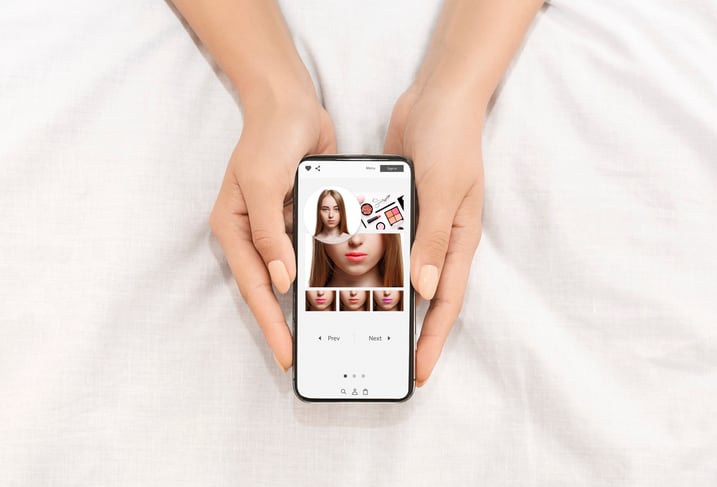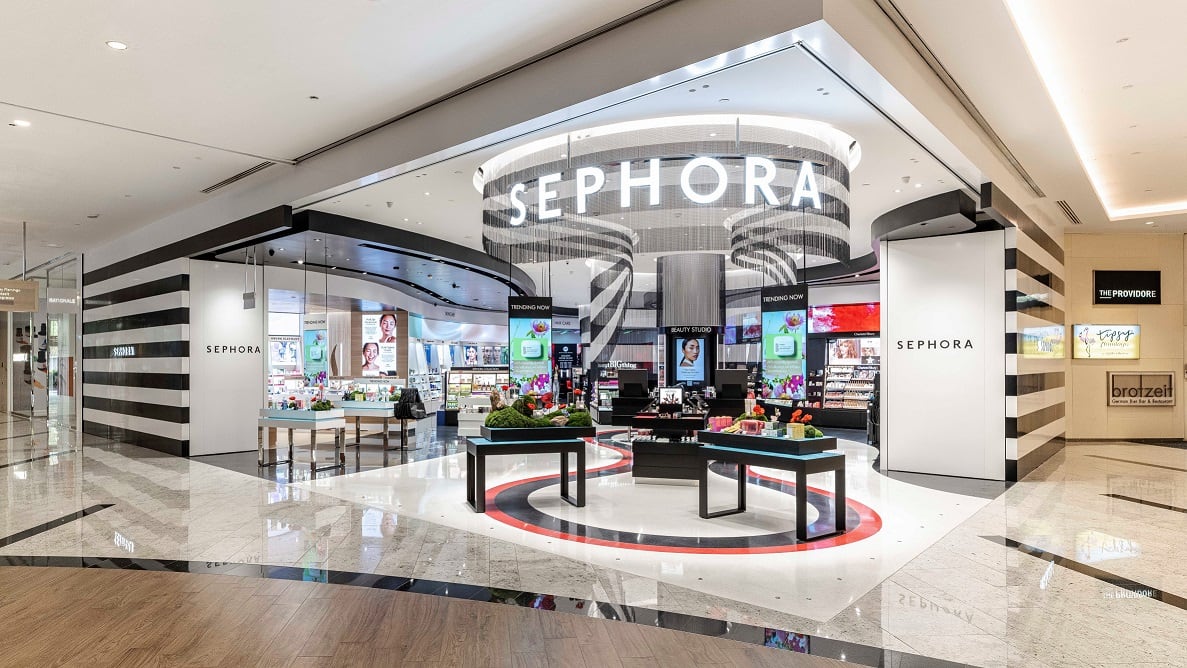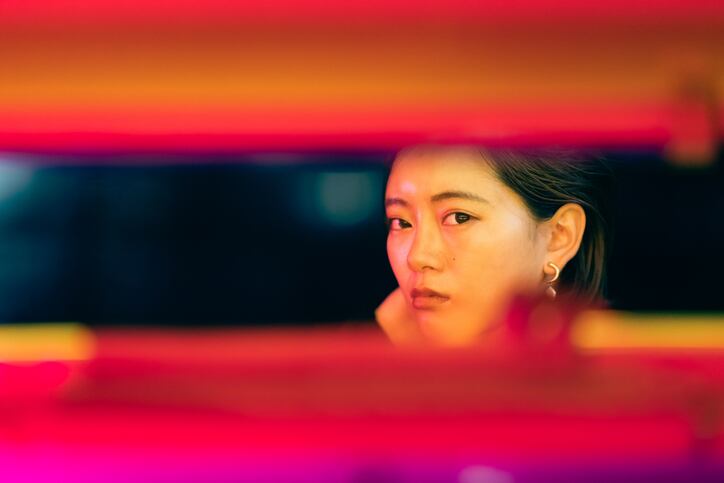By 2028, the global makeup category would hit €51.61bn ($50.28bn), up from €36.13bn ($35.22bn) in 2021 growing with a CAGR of 5.2% (2021-2028), according to Fortune Business Insights. And WGSN said that despite burgeoning concerns around the cost of living worldwide, there was clearly still a strong appetite for makeup amongst consumers.
So, what trends were on the horizon in makeup? And where exactly were the opportunities for industry?
Post-pandemic beauty behaviour shifts
“The makeup category has been energised by an outpouring of post-pandemic creativity and a desire to do things differently,” said Sharon Ahn, beauty trend forecaster and analyst at WGSN.
Writing in WGSN’s latest report Intelligence: Future of Makeup 2025, Ahn said: “As we head to 2025, existing beauty codes and behaviours will continue to be challenged, and cosmetics brands will need to embrace creativity, experimentation and technology to succeed.”
Beauty behaviours, she said, had “permanently changed” since COVID-19 and so industry would need to adapt products and strategies to meet new consumer priorities. “Product safety and minimalist, skin-friendly makeup will move up the hierarchy, alongside inclusive design and sustainability,” she said. WGSN previously spotlighted the importance of colour cosmetics in the wider skinimalism trend.
Ahn said colour cosmetic consumers would also increasingly seek out immersive virtual experiences, in the metaverse and in-store, carving out important opportunities for industry – a concept echoed by earlier insight from Mintel.
“The future of makeup merges imagination with innovation. Cosmetic products will be designed for all realities and all people, leaving no-one unseen and nowhere unserved,” Ahn wrote in the WGSN report.
Enter the ‘beauty-verse’
One key area for colour cosmetics over the coming years, she said, would be all-things-virtual, particularly the metaverse.
“The acceleration of beauty into the metaverse will unlock unlimited possibilities for consumer-brand interactions. For cosmetics brands, the ‘beautyverse’ presents an untapped opportunity to entertain and engage with digital natives and in particular Gen Z and Alpha cohorts who inhabit fluid realities,” she wrote.
There was a “dynamic environment” offered by the metaverse, enabling cosmetics brands to cultivate long-term engagement strategies with consumers, she said, particularly via use of virtual worlds, cryptocurrency, NFTs [non-fungible tokens] and Augmented Reality [AR].
“Virtual try-ons, digital showrooms and metaverse pop-ups will offer a fully immersive experience for consumers to discover and explore makeup products and connect with brands from anywhere and at any time,” Ahn said.
WGSN’s head of insight also recently called out virtual influencers as a “super innovative space” with plenty of potential for beauty brands.
Post-purchase engagement with QR codes and NFTs
Ahn said beyond the metaverse, the “pandemic-driven renaissance of QR code technology” was also set to take up important space in the future of makeup, empowering consumers to make more informed decisions when choosing cosmetics and also enhancing the post-purchase experience.
Digital collectibles, such as NFTs, also offered a myriad of options for brands to drive engagement and increase brand loyalty in the coming years, she said.
“By 2025, any confusion around the purpose of NFTs within beauty consumers will be overcome as their tangible benefits become realised, including unlocking exclusive perks, loyalty programmes, special memberships, and access to virtual versions of product purchases.”
Executives at Meta recently said 2022 represented “the start of the beginning” for the metaverse, with many precursors like Virtual Reality (VR) and Augmented Reality (AR) already existing. A panel of beauty industry experts agreed during a debate at this year’s Cosmoprof Worldwide Bologna, acknowledging industry as at “at the beginning of something that is huge”.
Interested in the future of beauty tech? You can still register for free to watch CosmeticsDesign's exclusive Beauty 4.0 - Tech, Tools and Future Trends webinar today for extended insight into horizon trends and opportunities in this fast-evolving space.




